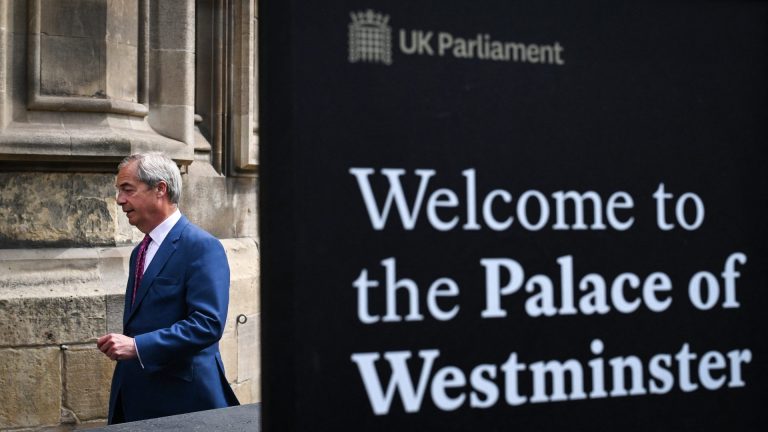A staggering 22% of people in the UK live in relative poverty, a 50% increase since the 1970s. Worse, this poverty is deepening – 3.4m households cannot afford to feed themselves, and 7,000 people die every winter because they cannot afford to heat their homes. In the sixth largest economy in the world, something is terribly broken. But it doesn’t have to be this way.
Across Europe, an idea has been gathering momentum: that all citizens should receive a basic income, paid for by the state. Unlike existing welfare systems, this Universal Basic Income (UBI) would be paid to everyone regardless of their employment status, with no complex means testing, and no threat of the withdrawal of money. The idea is that in a wealthy developed nation, no person should be at risk of destitution.
Yet surely giving people something for nothing would promote a life of idleness? As UBI has moved from the policy fringes and into mainstream discussion, trials in countries across the continent have revealed a different picture.
Rather than encouraging inactivity, the evidence suggests that providing citizens with a base-level monthly payment leads to greater overall productivity. Freed from budgetary stresses and severe poverty, people are better able to plan and use their time, and communities become happier and healthier.
After years of discussion on the policy fringes, the first EU-funded pilot of a basic income began in 2017 in Barcelona. A group of 1,000 low-income households were paid a monthly income of around €500 (£431) over a two-year period and researchers monitored changes in spending habits and overall behaviour. Compared with those relying on the existing Spanish welfare system, symptoms of severe deprivation significantly decreased. Recipients of the basic income were less likely to go to bed hungry or to find themselves unable to pay their bills.
A report by the Young Foundation concluded that the “majority of families prioritised using the income to improve their children’s lives, to meet their basic needs such as clothing, toys, or stationery, to pay for tuition”. Unsurprisingly, overall wellbeing also increased – the reduced financial uncertainty lowered stress levels.
While researchers did report a drop in employment levels among basic-income recipients, this effect appeared to be driven by households with caring responsibilities. Rather than inducing idleness, people felt able to make freer choices about how to deploy their time, given their family circumstances.
Other participants explained “that [the basic income] had put them in a better position to get a job, due to the extra time, resource and ‘mental bandwidth’ for job searching and training/education which the income provided”.
Similarly, the city of Utrecht in the Netherlands set up a two-year trial that examined the impact of a basic income on employment. The final report showed no decrease in the likelihood of being in work; in fact, recipients with low levels of education became more likely to find work.
While these city-specific trials were running, Finland conducted a nationwide experiment. Two thousand randomly selected unemployed residents were paid a monthly income of €560 (£490). Again, recipients of the basic income reported large increases in overall life satisfaction and wellbeing, while cases of stress and depression fell. As in Utrecht, the Finnish study reported a small increase in employment levels, and the basic income appeared to offer new opportunities that would previously have been unobtainable.
A number of participants found that they were able to take up small pieces of low-paying work that they wished to do but previously couldn’t have justified financially, whereas equally, some felt empowered “to say no to low-paid insecure jobs, and thus increased their sense of autonomy”.
Outside formal employment, the basic income allowed some to devote more time to unpaid care responsibilities for family members or neighbours, while others sought training and educational opportunities. In short, far from sitting back and spongeing off the state’s new generosity, a basic income seemed to increase people’s productive capabilities.
In the end, the Finnish coalition government decided against introducing UBI. However, there was an acceleration in the number of countries beginning their own trials, notably in Germany and also Ireland, where a scheme specifically targeted workers in the arts. In that scheme, which runs until 2025, recipients receive €1,300 per month (£1,113). In Norway, plans are being developed in the city of Trondheim for a basic income specifically for the under-30s.
Remarkable progress – and yet no European pilot to date has trialled a truly universal basic income. Most of these examples are aimed at specific groups such as unemployed people or low-income households. The full potential of UBI and its community-wide effects have not yet been harnessed.
But a nationwide UBI is being proposed. Several left wing parties across Europe have now adopted the idea in their manifestos, and the European parliament is also taking an interest. In Europe at least, Universal Basic Income appears to be, if not imminent, a topic of serious discussion.
Back in the UK, it is clear that our welfare system is unfit for purpose. Rough sleeping has more than doubled since 2010. Trussell Trust food bank usage has soared. In 2008-09, 26,000 people used a food bank – in 2022-23 the number was 3 million. There are now more food banks in the UK than there are branches of Starbucks.
Benefits risk pushing people into a “poverty trap”; if a claimant finds a better-paid job, there is a sudden withdrawal of benefits – this reduces the incentive to find one. Britain needs a new approach.
So far Westminster has ignored the idea of UBI. While some concerns are ideological, others question affordability. But modelling by the Compass think tank shows that with only minor tax adjustments, a relatively low basic income for a single adult aged 18-65 of £63 per week (on top of most existing benefits) would produce a small net saving for the Treasury.
By reducing the personal allowance and raising income tax by 3p per bracket, this approach would produce an average increase in net income for 70% of households. It would equate to a halving in child and pensioner poverty, and a 25% reduction in working-age poverty.
Yet the UK has the wealth and the opportunity to think bigger. More ambitious proposals of more than £100 per week would do more to lift people out of deprivation, but would quickly move beyond political feasibility.
How could Britain pay for a policy such as UBI? There is one area where wealth has ballooned since austerity – land value. Between 1995 and 2017, the price of land in the UK increased by an eye-watering 400% and is now collectively valued at £6.3tn. While some forms of land-based taxes exist, these are now so out of date as to be almost comical; council tax rates, for example, are based on the property valuations made in April 1991.
Introducing a land value tax (an annual fee based on the value of the land underlying a home, business or estate) could not only generate upwards of £100bn for the Treasury depending on the level of tax set, but would produce a funding model with fairness and justice at its core.
The value of land rises not through the owner’s hard work, but largely through infrastructural developments in the surrounding area, developments paid for by all taxpaying citizens. In other words, our current system actively redistributes wealth from working people to landowners; a UBI funded by land value taxes would redress this balance.
Critics might argue that unlocking money from land and pumping it into the everyday economy runs inflationary risks. But inflation would only kick in if supply remained static, whereas generally – pandemic-induced supply-chain crisis aside – the supply of goods is able to increase in proportion to increased demand.
While UBI does reduce poverty, current reliance on, for example, food banks also means that a large part of the demand for goods is already in the system. Moreover, lower earners tend to spend primarily on locally bought British goods, rather than imported luxury items or foreign travel, providing further potential benefits to the domestic economy. In the housing market, a land value tax would then actively discourage landlords from raising rents in response to higher incomes if the tax level were tied in part to rental value.
In the longer term, UBI’s economic benefits would really begin to show. New research by Northumbria University has found that the impact of a basic income system on British health outcomes could save money for the NHS and raise additional billions through increased productivity.
Depending on the income level set, researchers reported that up to 1m depressive disorders and a further “million cases of clinically significant physical health symptoms could be prevented or postponed”. Based on these calculations, they estimated that the NHS could save up to £1.03bn from the impact on mental health alone, while the impact on life expectancy could generate between £3.9bn and £19.7bn in additional productivity. The potential for a happier, healthier nation is within our grasp if we are willing to invest in our citizens.
As our public services buckle after more than a decade of cuts, it is clear that Westminster remains deaf to the evidence from the continent. The Welsh government recently went it alone and launched a small-scale UBI pilot for care leavers, but despite calls from three UK cities to allow them to trial UBI locally, there was no green light from the Conservatives and the new Labour government likewise remains nervous of a wrong move in the policy arena.
Yet public opinion is changing, and UBI is becoming increasingly popular with younger voters; recent YouGov polling found a majority of under-65s now supportive of the proposal, and only a third believed there would be a negative impact on employment levels or hours worked.
As Brexit’s economic impacts continue to bite, support for UBI is growing even in some unlikely quarters. Earlier this year, a group of British farmers formed a campaign for the introduction of a farmers’ basic income in the face of the loss of EU subsidies.
These calls for a new approach are likely to increase as automation and AI continue to change our relationship with work. Yet UBI provides a framework for meeting these challenges head on, with a model that ensures that rising productivity contributes to higher living standards, even if our working hours need to reduce.
As Britain and its creaking welfare system appear increasingly last century, European initiative shows us a way forward. A Universal Basic Income, paid for by unlocking the billions of pounds funnelled into British land over the past 30 years, will enable us to build a society fit for the modern world. A fairer future is possible, and the time for change is now.









